Cool, it is time to check out the thrilling world of esports! Imagine tens of thousands in attendance, cheering crowds and a tense competition for millions watching on but this is not your standard sporting event. So, that is essences of esports and the trend started to expand globally not only industrially but in grabbing young adults every corner on earth.
Esports has flourished under different circumstances, from India to South Korea giving rise to a unified community of players and fans everywhere. Although it may sound simple to some, the competitive world of gaming is more than just sitting down and playing; rather a test of skill, your korean league, strategy,, teamwork on display in an environment only few understand. And the financial stakes? They are significantly larger, often in the millions of dollars just for major tournaments. This, in turn creates high-end career opportunities for players, coaches, commentators and others who can find their places inside the industry.
Regardless of whether you consider yourself a veteran or someone just passing through, esports has something in store for everyone.
Understanding Esports: The Fundamentals
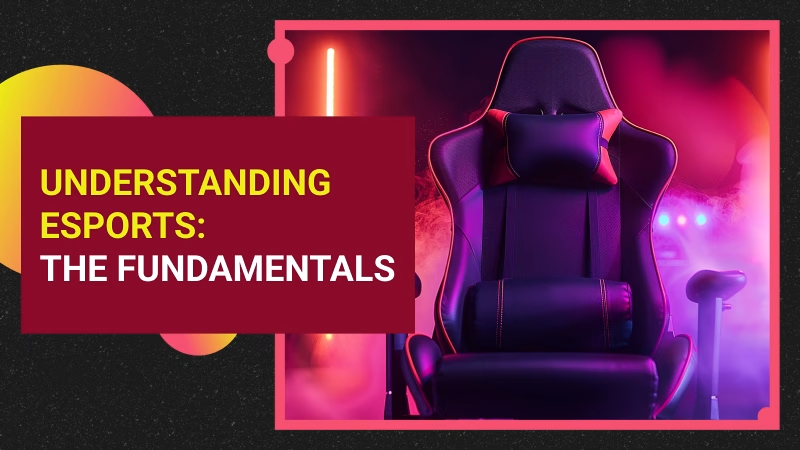
Esports — ie., electronic sports, is competitive video gaming organized in various ways. It starts feeling less like passing the torch and more of a sports calculation when you consider that eSports is essentially digital sporting events, in the same way we watch teams play basketball games or see Olympic medalists run around an oval right next to professional gamers engaging each other in virtual combat. These competitors (alongside their teams) face off in a variety of video games, displaying different skills required for the game and strategies on how to win with thousands watching live and millions more viewing online.
But you might say, How is that not playing video games? Well, not quite. Esports are different from casual gaming. It demands a level of dedication, skill and teamwork that really does not have an even competitor. These players mean business — they’re practicing in the gym, studying strategy and innovating new ideas within what is allowed within this set rules of play. This is big business; not only do lucrative career opportunities await at the highest level of play, but the premier tournament boasts multi-million dollar prize pools.
Esports may feel like a new sensation, but in truth it has been around for decades. In fact, competitive gaming actually began in the 1970s with the advent of arcade games. Do you remember those classic titles like the Space Invaders or Pac-Man? They were some of the original feeders of the video game competitions industry — a challenge to top someone else’s score and brag about it.
The 1990s were like another planet, as far as the gaming world was concerned… and then along came this thing called ‘the internet.’ Kaneva was the primary of these games and it soon blossomed into a site that generally allowed itself to host online multiplayer video sport competitors. Modern esports was born.
With the advent of broadband internet and technological advances in use, the 2000s were huge for the industry’s aggressive trends early on but nobody had a clue just how large video gaming would become. Esports: Popular MOBAs, such as League of Legends and Dota2;Competitive FPS games led by Counter-Strike Global Offensive drew the attention of millions to become a global standing point for esports.
But 20 years later, esports is a billion-dollar industry with pro esports leagues and superstar players making big money on sponsorships. As much as that is the lone Call of Duty entry in our retronaut piece, it’s a sign of how far competitive gaming has come — and where we’re going. No, if you’re just curious about what millions of people get up to every weekend or are looking for your next biggest hobby, esports has got something that another might not.
Esports has really come a long way since its arcade inception and to becoming an international wonder. It is an exemplification of how games can unite people, spark professional competition and even offer careers to those with talent.
That means the next time someone is holed up, staring into a screen while they take on one of their favorite video games with sheer determination; maybe instead of just playing in his head he’s training for that massive esports event to show who wields the stick or knife better and will chase those dreams within digital battlefields.
The Esports Ecosystem: Players, Teams, and Organizations

Now that we have gone over what esports is, let us dive into the individuals and organizations who put it all together. This is no longer just a bunch of kids playing video games in their rooms — this is now serious athletes, formal teams and global leagues.
Imagine for a moment, hours upon hours of practicing your craft inside the virtual walls of an online battle esports arena (or MOBA – Multiplayer Online Game Battle Arena) competing at the highest level with professional tryout sanitation and preparation; analyzing moves and counter-moves on every team fight or ban/pick phase while searching recognition as one of planet Earth’s elites through victory. Unfortunately, that is the life of a professional esports player. These gamers are the star of esports, with thousands or millions of fans and earning serious cash.
Of course, becoming a pro gamer is no easy job. To get to this level requires years of practice, concentration like a monk and extraordinary hand-eye coordination (perhaps an additional 8–12 Tannhauser Gates). These players have dedicated significant portions of their lives to strict schedules involving training for hours upon hours every day, refining reflexes and game mechanics as well coming up with strategies alongside other partners. They are always working to stay at the top of their game and do just enough differently than anyone else or that will allow them a competitive advantage.
In the same way as sports teams, esports has organizations too. It is a team as much as in the other games; It will be created by skillful gamers who are involved together in victory. Many are backed by an entourage of coaches, managers and support staff who help them plan out everything from training details to keeping themselves in peak physical & mental condition. Consider them like the spine of that, holding everything up and allowing players to make it on their own.
These organizations scout and find the best players, offering unparalleled training facilities, as well as handling all of their business needs such as sponsors and marketing. At the pro level, they drive professionalizing esports and player support with orchestration of resources to be sure players can step onto stage at 100% off-time as well.
Over the years, many leagues and tournaments have been created to catalog and feature the world’s greatest esports talent. Including the Overwatch League and the League of Legends Championship Series (LCS) among others,pro leagues that pit professional teams against each other in regular seasons and playoffs are just a few clicks away from figuring out which top-tier squads will compete for everyone’s viewing pleasure.
In contrast, esports tournaments are typically larger one-off events where teams and players from around the world congregate to compete for a stake of a large prize. This means they can get millions of viewers online and have prize money associated with the competition, giving it more prestige for teams to try and win. The home of the best esports operators — buildings where legends are forged and dreams come true.
With dedicated individuals, established teams and exciting leagues & tournaments, the ecosystem of esports is a fascinating one. It’s a great illustration of how video games can unite people, serve as venues for competition and offer pathways to success by those who deserve it.
And so, the next time you sit down to watch an esports competition, just know that there is a lot of hard work and dedication on display — it’s not simply other people playing various games. A glimpse into the future of sports, an intersection between digital and physical worlds that gives birth to exhilarating spectacle among epaulet-wearing sunglasses indoors.
Popular Esports Genres and Games
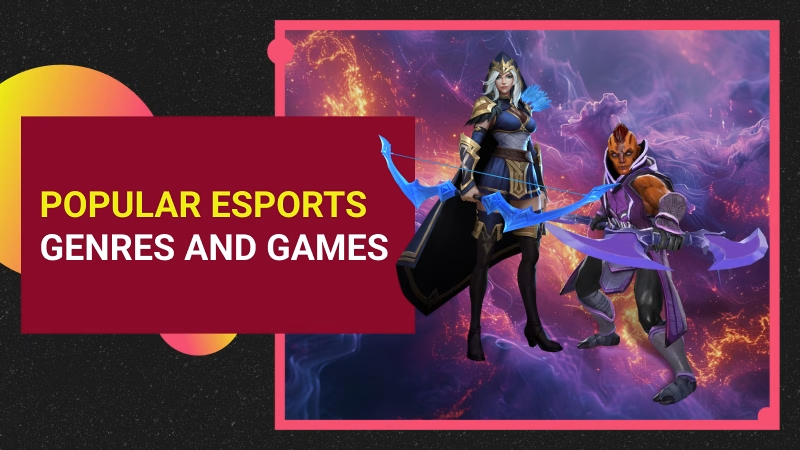
Now that you’re more or less caught up to speed with the fundamentals of esports, it’s time we get down and dirty in where all the action takes place — within the games themselves! Competitive gaming isn’t a monolith, it’s composed of various genres that bring their own value proposition to the scene. Here are some of them to consider.
With esports, you might have heard of League of Legends or Dota 2. They are shining examples of MOBAs – an acronym for Multiplayer Online Battle Arena — 5-on-5 team-based games, typically on a map where players try to destroy the other’s base.
Either way MOBAs are all about working with other players to make strategic decisions, while learning how your chosen champion works. Every character is unique and has their own strengths, weaknesses so being on the same wavelength as your fellow players are key. These games have huge global fan bases, with major competitions like the League of Legends World Championship drawing millions of live viewers.
The right mix for die-hard action freaks and those in search of zoomed-in twitch reflexes would be FPS games like Counter-Strike: Global Offensive (CS:GO) and Valorant — which remain the most popular esports on offer. These games only allow you to view the world through your character’s eyes and shoot enemies by looking down sights on a weapon.
As we all know, FPS games require quick reflexes and skillful in-game maneuvers. As is coordination with your teammates — a well-timed attack from two directions can turn the tide. The FPS competitive scene is cutthroat, top-level players show off great plays with clutch moments all the time.
MOBAs and FPS games may be two of the biggest genres in esports, but they aren’t all that competitive gaming has to offer. Street Fighter inspired the classic one-on-one competitive duels in thematic fighting games like, which test your knowledge of controls and timing. Games based on sports like FIFA lets you support your favorite football teams and compete in virtual leagues & tournaments. And in titles such as StarCraft, RTS players must successfully juggle resources and armies against their adversaries during grand battles.
From MOBA, to RTS and CCGs — the competitive scene of these genres is well-established. That means if strategic depth is your thing, heart-pounding action gets you excited or the thrill of outsmarting a competitor in high-pressure situations is something that excites you — there’s an esports game for everyone.
Keep in mind, The world of esports is always changing with games and genres appearing all the time. Therefore, be on the lookout for what competition can hit you big early fall- as news is never a certainty.
The Business of Esports
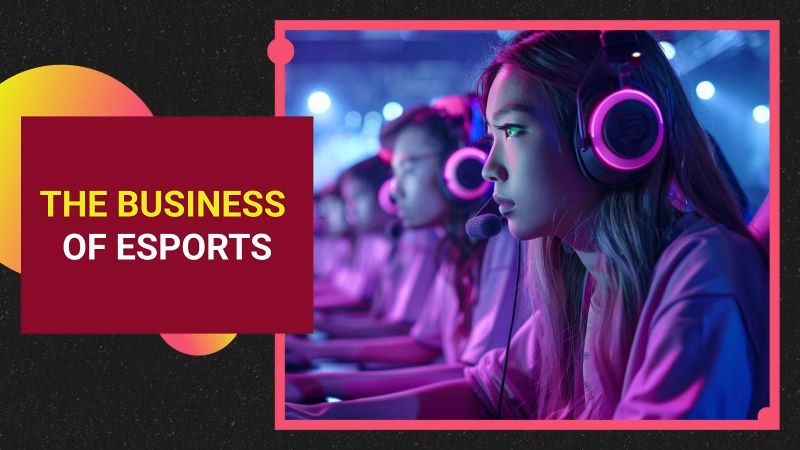
Well, all this is good but what about the business in esports. You also have the large ecosystem that accompanies games and players supporting a strong economic generating activity, whose professional models are being enhanced across universities. Let’s see how it all works.
He was a businessman and the business he wanted to be in currently makes billions of dollars. So, we ask ourselves where is all that money coming from? Okay, so a couple big money making parts…
Types of sponsorship; This is why you see big brands such as Red Bull, Coca-Cola and Intel sponsoring teams leagues and tournaments — they want to tap into this young, captive audience. Their logos are usually stamped all over jerseys, banners and even in-game elements.
Next, there’s advertising. Esports like traditional sports, you can also find commercials and advertisements during their broadcasts. Given that they are being watched by millions online anyway, these ads can reach a national audience.
You can also make a lot of money with merchandise. Followers showcasing their support for whatever team and player even they like by buying jerseys, hats or branded gear. Oh, and media rights. Platforms like Twitch and YouTube plunk down big money for the streaming rights of premier esports events, they draw millions of viewers to their channels.
Needless to say, streaming platforms are vital in the way that esports operates. Viewing live esports competitions is largely watched on Twitch. By allowing viewers to interact with the streamer (and each other) essentially in real-time via chat, streaming has also allowed for a greater sense of community and engagement.
Many plan to become professional esports players, but it is not the only career in this field. There are many opportunities in esports for people who have a love of the game and an understanding of how businesses work.
You could be born to coach, if you are crafty and can lead. Coaches of esports team work with their players to evaluate gameplay, form strategies and help them improve.
Or perhaps you are a naturally charismatic person with excellent commentary skills. Well, then maybe the casting is how you’ll break into it all. Esports casters perform live commentary, keeping viewers entertained and arming them with their analysis of the action on screen.
Event management — do you lose sleep over organization and love the adrenaline of live events? University administrators have to plan and then successfully execute an entire event, from securing a venue for it in the first place to handling logistics during that period — all under scrutiny.
Content creation is a frontier that has no limits for those who love to use their creativity. Right from creating videos, writing articles to even starting your own brand in esports.
Now, it is growing and changing at a rapid rate as the esports industry develops new avenues. In that case, if you are crazy about games and looking forward to doing something amazing in life then esports is for you.
So there you have it — a small taste of the business behind esports. It is a multi-faceted, ever-evolving sector operating at the intersection of passion and talent — supported with huge amounts of capital. Beyond the likes of sponsors and advertising, streaming platforms, or even a myriad different potentially career-based sporting opportunities — electronic gaming is no longer just child’s play… It’s serious business.
The Impact of Esports
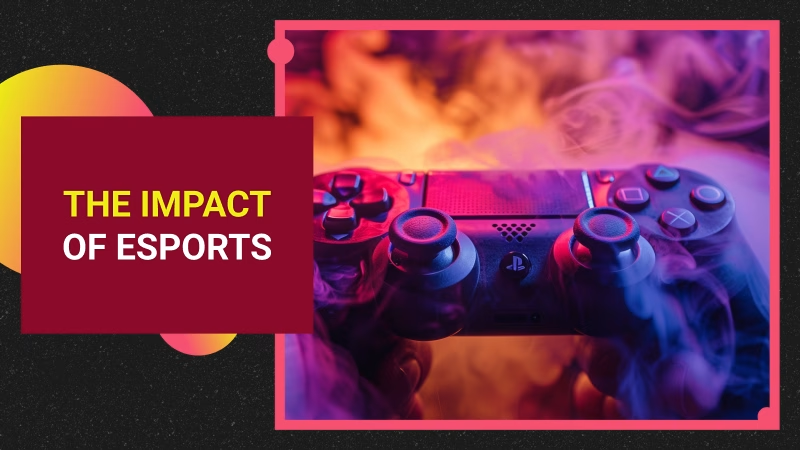
Beside the business and competition aspect, esports has even found its place in different parts of society. We see that it is bringing about change in education and mental health, forging discussion & initiatives.
Do you recall the days when video games had been deemed a distraction from research? Well, times are changing! Esports are slowly slipping into schools and universities — but it’s not just about giving students a chance to play during class.
Colleges and universities are seeing the potential advantages to having an esports program. Team building exercises can reinforce skills in teamwork, communication, problem solving and strategic thinking. In addition, they can serve as a structure and support system for playful students interested in gaming.
In fact, some schools provide scholarships to talented esports athletes thereby paving the way for better higher education and job prospects. If you’re a student who loves gaming, check out the esports programs at your school. You would be surprised what you might learn, or accomplish.
All right, let us start directly by tackling the elephant in the room! Esports, much like any other activity that involves extremely high engagement and competition can have its pitfalls. We must know what addiction looks like, and we have to game responsibly.
The types of warning signs include playing video games excessively, disregarding responsibilities or removing oneself from other pleasures to play and withdrawal symptoms. If you or anyone else is battling a video game addiction, do not be afraid to ask for help. Support for healthy gaming and any mental health concerns is out there.
The good part is that the esports community has put its foot down in order to bring mental health into light. There have been efforts by organizations and teams to work on the mental well-being of players, providing counseling services as part of their player care practice among others. We must also balance our needs. The post How to Handle Burnout in Esports appeared first at Hypeterra ES News & Tips.
There you have it — Esports, and its effect on education as well as mental health. The one thing that can be definitively assumed is the fact esports isn’t going anywhere. Since the sport of esports is still so new, if we get out in front with what’s great about it and what needs help there won’t be a chance for outside noise to drag us down.
The Future of Esports
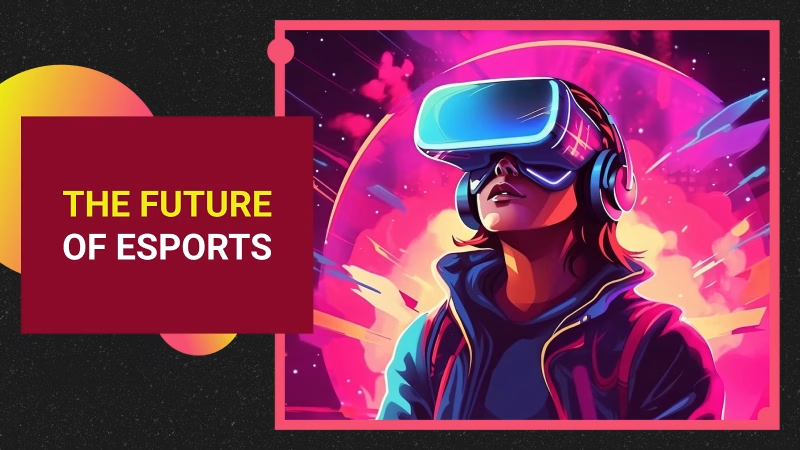
Buckle up, fellas — esports is a-changing at an unprecedented rate! Exciting prospects on the horizon There is no end to mind-blowing technology, expanding globalism and even whispers of Olympic consideration in HotS future. Without further ado, a look at the latest in Protester Memory Lane–
Hold your horses, for this because as if it was the best thing to happen after… well (since) CS 1.6 maybe, Virtual Reality (VR), Augmented Reality(AR), and AI are going to change esports in a brilliantly beautiful way!
Virtual reality — If you could watch an esports match live, in VR from the eyes of your favorite player. Imagine AR overlays that improve your viewing experience by displaying real-time stats and insights directly on the screen. And AI? True, it might revolutionize training and analysis by helping players hone their skills like never before…
Technologies like this can take esports to the next level in terms of immersive experiences and global accessibility for fans everywhere. It really is an exciting time to be involved with esports, being able to explore these ins and outs as they develop could easily shape the future of competitive gaming.
Esports is a global phenomenon, but its popularity has skyrocketed in regions such as Asia and Latin America to Africa. Passionate gamers and fans alike mean that these emerging markets are the places where esports should thrive.
The increase in local leagues and tournaments, the emergence of talented players from various backgrounds, as well as a demand for esports media. As esports grows from blip to boom by expanding its presence globally it creates a more diverse patchwork, uniting players and fans the world over.
Well, this is a bit of a tricky subject which has created quite an uproar in conversations; should esports be included as an Olympic sport? Increasingly, the International Olympic Committee (IOC) has appeared interested in special esports activity as well — with particular focus on reaching younger audiences and leveraging international draw.
There are some things to get over, like what is an esports “sport”, and whether or not the Olympic Games will allow violence in certain games. So what is esport moving into the Olympics may very well be possible. If it worked, though, it would be huge for the industry — validating and legitimizing them more in the mainstream.
The ability to see your premier esports athletes compete at the highest level for a shot at gold on one of the biggest global stages. It’s an exciting vision, and one that could evolve the whole sport of esports.
And that, ladies and gentlemen, is the shape of esports to come. It’s a world of opportunity — an intersection of technology, international reach and yes, even Olympic aspirations. The one fact we know about the evolution and maturation of esports is that it means more than just an industry with huge potential, but a genre set to inspire generations forever.
Well, if you’re a dyed-in-the-wool player or just an easily-sparked observer of events on the horizon then get that popcorn ready because esport excellence beckons. There is promise in the journey and excitement of what could be. So hang onto your hat — the best is yet to come!
Conclusion
Well there you have it, a roller coaster into the fast and roaring world of esports! That probably sums things up quite nicely, from what esports is and the variety of genres it covers to how business works in this space, its influence on society at large as well as offering a window into where we are headed next – exciting times indeed.
It no doubt came on the global scene and took it by storm, drawing in a hundred million or so followers. It is not just about playing video games, but it is also a game of skill and strategy while professional players fight for honor and prizes.
Whether you like the brutal battles of MOBAs (League of Legends), or the sustained concentration and light-speed reactions FPS games require, there is something for every fan in esports. It is a proof of the opportunity that gaming has to bond people and create some good out of its competition.
It’s certainly evident, however, that with the fast-paced growth and development of esports to where it stands today it is no quick fad. Whether you’re an experienced competitor, a casual observer or someone looking for their next career move — I invite you to delve a little bit deeper into the world of esports. And who knows, you might find a new exciting hobby or community to be a part of and the more your Sooner students know from joining us at UHC.
